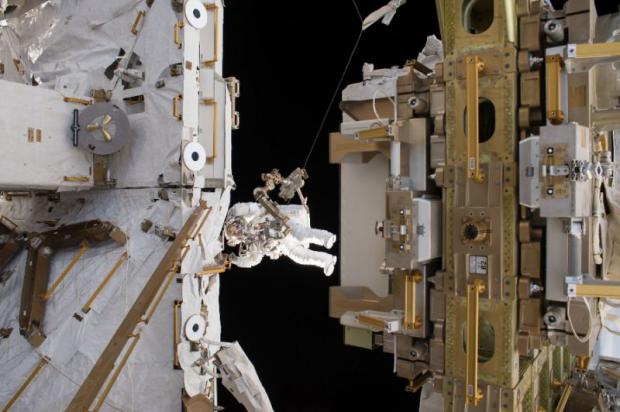
Breaking News
 Tucker Carlson on Why He Interviewed Nick Fuentes and What He Wanted to Convey To Him
Tucker Carlson on Why He Interviewed Nick Fuentes and What He Wanted to Convey To Him
 The Global War on Christianity Just Got a Whole Lot Worse, and Ted Cruz Doesn't Care
The Global War on Christianity Just Got a Whole Lot Worse, and Ted Cruz Doesn't Care
 BREAKING EXCLUSIVE: The Globalists Are Trying To Trigger Stock Market Crash Worse Than 1929...
BREAKING EXCLUSIVE: The Globalists Are Trying To Trigger Stock Market Crash Worse Than 1929...
 ICE's 'Frightening' Facial Recognition App is Scanning US Citizens Without Their Consent
ICE's 'Frightening' Facial Recognition App is Scanning US Citizens Without Their Consent
Top Tech News
 HUGE 32kWh LiFePO4 DIY Battery w/ 628Ah Cells! 90 Minute Build
HUGE 32kWh LiFePO4 DIY Battery w/ 628Ah Cells! 90 Minute Build
 What Has Bitcoin Become 17 Years After Satoshi Nakamoto Published The Whitepaper?
What Has Bitcoin Become 17 Years After Satoshi Nakamoto Published The Whitepaper?
 Japan just injected artificial blood into a human. No blood type needed. No refrigeration.
Japan just injected artificial blood into a human. No blood type needed. No refrigeration.
 The 6 Best LLM Tools To Run Models Locally
The 6 Best LLM Tools To Run Models Locally
 Testing My First Sodium-Ion Solar Battery
Testing My First Sodium-Ion Solar Battery
 A man once paralyzed from the waist down now stands on his own, not with machines or wires,...
A man once paralyzed from the waist down now stands on his own, not with machines or wires,...
 Review: Thumb-sized thermal camera turns your phone into a smart tool
Review: Thumb-sized thermal camera turns your phone into a smart tool
 Army To Bring Nuclear Microreactors To Its Bases By 2028
Army To Bring Nuclear Microreactors To Its Bases By 2028
 Nissan Says It's On Track For Solid-State Batteries That Double EV Range By 2028
Nissan Says It's On Track For Solid-State Batteries That Double EV Range By 2028
US wants to privatize International Space Station: report

Washington (AFP) - Could the International Space Station become a commercial venture run by private industry?
That is the wish of the White House, which hopes to end funding for the costly program within a few years, The Washington Post reported Sunday.
Related SearchesInternational Space StationISS Space StationSpace Shuttle
The US plan, the paper said, involves privatizing the ISS, a low-orbit space station piloted by the US space agency NASA and developed jointly with its Russian counterpart.
The station has allowed international crews -- notably in collaboration with the Canadian, European and Japanese space agencies -- to pursue scientific research in the environment of a low Earth orbit.
"The decision to end direct federal support for the ISS in 2025 does not imply that the platform itself will be deorbited at that time," says an internal NASA document obtained by the Post. "It is possible that industry could continue to operate certain elements or capabilities of the ISS as part of a future commercial platform."
"NASA will expand international and commercial partnerships over the next seven years in order to ensure continued human access to and presence in low Earth orbit," the document says.
A budget request to be issued Monday by the Trump administration will call for $150 million to be spent on the ISS in the 2019 fiscal year, and more in succeeding years, "to enable the development and maturation of commercial entities and capabilities which will ensure that commercial successors to the ISS... are operational when they are needed."
To ensure a smooth transition, the White House would ask the private sector to provide market analyses and development plans, the Post reported.
The plan is expected to face stiff opposition. The United States has already spent some $100 billion to launch, operate and support the orbital station.

 Carbon based computers that run on iron
Carbon based computers that run on iron

